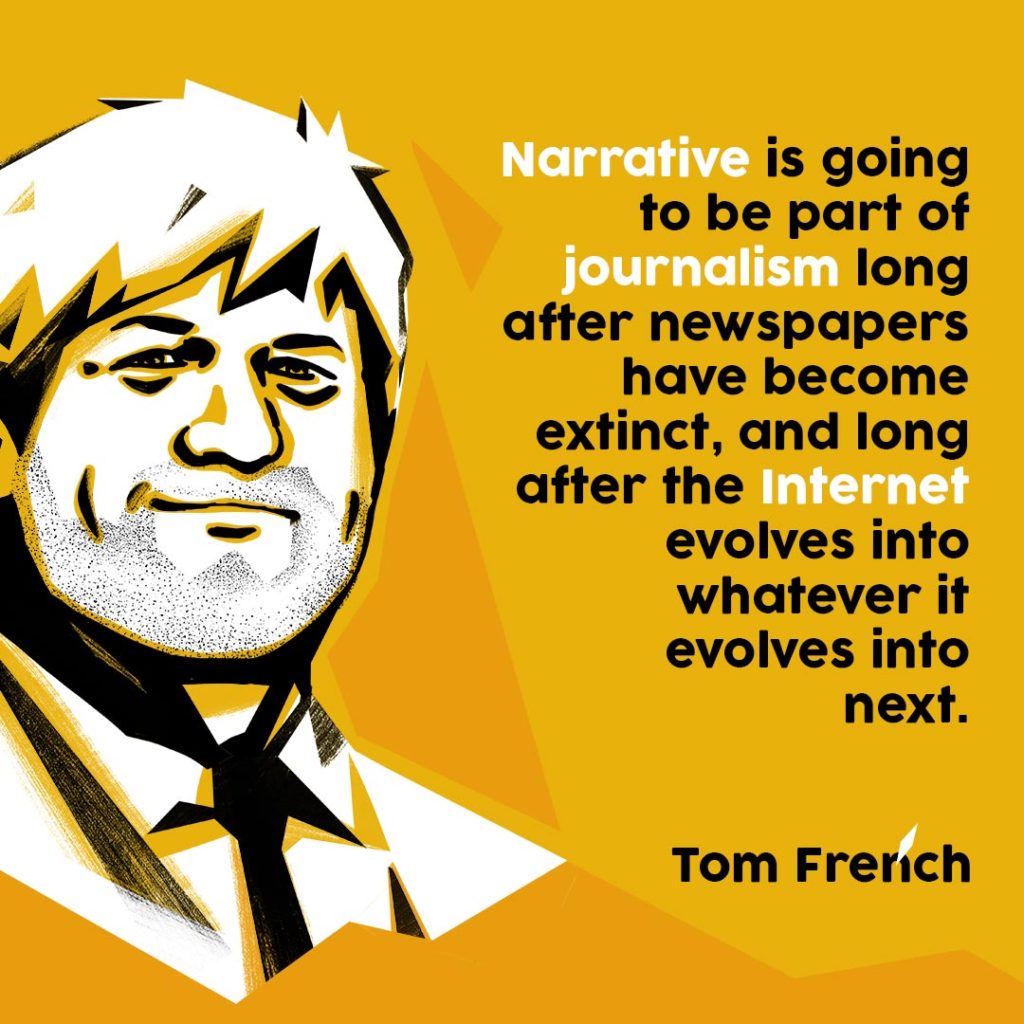Thomas French is a Pulitzer Prize winning reporter specialized in serial narratives: larger works of narrative nonfiction published in sequential installments. He paved the way for thoroughly documented and brilliantly written nonfiction almost three decades ago, and continues to teach the craft nowadays.

Tom grew up in Indiana and graduated journalism school before becoming a Poynter Institute scholar and beginning his career at St. Petersburg Times in 1981 – a newspaper he helped redefine and where he spent the next 27 years. He covered everything from hurricanes, police beats, criminal trials, and was part of a “small group of writers who led the renaissance in newspaper narratives in the 80s and 90s,” according to his former executive editor at the paper.
He is best known for his series Angels and Demons, that brought him a Pulitzer Prize in 1998. The story chronicled the murder of an Ohio woman and her two teenage daughters while on vacation, the aftermath of that tragic event and the police investigation that followed. Two of his other serials, A Cry in the Night and South of Heaven, were later published as books.
In 2016, Tom and his wife, the journalist Kelley Benham French (a past speaker at The Power of Storytelling), co-wrote a touching memoir titled Juniper about the premature birth of their daughter at just 23 weeks. On October 17, you can meet Tom at an event celebrating the launch of the Romanian translation of Juniper by Editura Publica, at Mezanin, as part of our week-long festival.
In the meantime, we’ll leave you with some of his thoughts on narrative writing to get a feel of what he’ll be talking about at #Story17:
♦ That’s what narrative reporting is: you look for what a friend of mine calls fault lines, where good intentions clash with other aspects of reality.
♦ To me there are a few basic rules in journalism. You have to be as accurate as you possibly can be, and as fair as you can possibly can be. And I think your work has to be as vivid and engaging as it can be.
♦ When in doubt, be straight. One piece of advice for young reporters is to be straight with your sources, tell them exactly whatever you’re doing, why you’re doing it and why you think it matters.
♦ Yes, interviewing is at the heart of journalism, I do it all the time, everybody does it all the time, but we also need to know to be quiet and stop asking questions all the time. I think it’s really important to learn to be quiet and respectful and to allow things to unfold in front of us.
♦ We place incredible importance in journalism on what people say, and it does matter. But very often we don’t place any importance on how they actually live their lives. I think we should be measuring the distance between what people say and what they actually do. I think that’s our job as journalists.
♦ Narrative is going to be part of journalism long after newspapers have become extinct, and long after the Internet evolves into whatever it evolves into next. Narrative is not going to go away. (…) It’s so much a part of what we do. It’s woven into every newspaper, every day. The entire sports section is essentially narrative. The comics page is narrative. The political coverage of a campaign is narrative. It’s woven into what we do so tightly (…) It’s not going to go away. It can’t go away. The stories will just become boring, long, jumbled articles of statistics if there’s not a human story unfolding and illuminating that larger issue.



